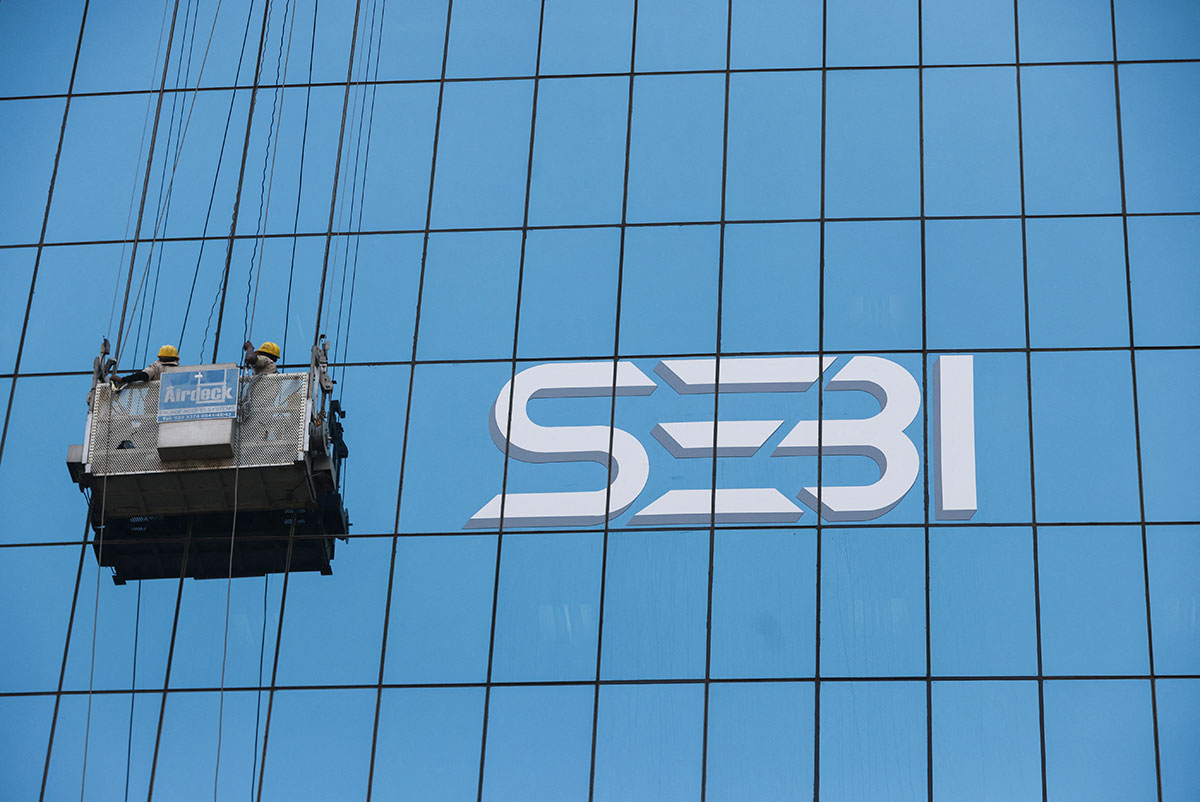Sebi has decided to make electronic payments mandatory for demat account holders to ensure quicker transactions.
Photograph: Francis Mascarenhas/Reuters
The Sebi board on Wednesday approved a series of measures, including stricter regulatory norms for SME IPOs, a comprehensive overhaul of investment banking regulations, and an expanded definition of Unpublished Price Sensitive Information (UPSI).
Also, the board approved reforms to boost ease of doing business for Debenture Trustees, ESG rating providers, InvITs, REITs, and SM REITs.
In a statement after the board meeting, Sebi decided to introduce specific timelines for fund deployment in New Fund Offers (NFOs) and eased compliance burdens for employees of Asset Management Companies (AMCs).
A proposal has been cleared for establishing an agency for verifying risk-return metrics for entities like investment advisors and algorithmic traders.
The board also approved a proposal that requires custodians to maintain a net worth of Rs 75 crore.
This would enable incidental activities, like fund accounting while emphasising conflict-of-interest safeguards.
Further, Sebi has decided to make electronic payments mandatory for demat account holders to ensure quicker transactions.
These measures are aimed at strengthening governance frameworks, reducing regulatory burdens, and enhancing investor protection across financial markets.
With regards to SME IPOs, Sebi has decided to introduce profitability criteria for companies planning to come out with an IPO, put a limit on offer-for-sale (OFS) and introduce phased lock-in for promoters.
On the investment banking rules, Sebi is looking to introduce two categories based on net worth — Category 1 (Rs 50 crore minimum) for all activities and Category 2 (Rs 10 crore minimum), excluding equity issues on the main Board.
Merchant bankers would be required to meet revenue thresholds over three years to retain registration, except those managing only debt or hybrid securities.
The liquid net worth of 25 per cent of the minimum requirement and underwriting limits of 20 times the liquid net worth have been mandated.
To curb conflicts of interest, merchant bankers cannot lead-manage public issues if key personnel hold more than 0.1 per cent of the issuer’s shares.
Sebi has also decided to expand the definition of Unpublished Price Sensitive Information (UPSI) to include more material events for clarity.
Regarding Debenture Trustees (DTs), Sebi codified DT rights and issuer obligations to streamline fiduciary roles, mandated standardisation of Debenture Trust Deeds for uniformity, and required DTs to separate non-regulated activities into a new entity within two years.
On ESG rating providers (ERPs), Sebi said such entities need to ensure simultaneous sharing of ESG reports with issuers and subscribers and mandated separation of non-regulated activities to improve operational focus and transparency.
In the case of High-Value Debt Listed Entities (HVDLEs), Sebi has increased the identification threshold for HVDLEs from Rs 500 crore to Rs 1,000 crore, introduced a Business Responsibility and Sustainability Report (BRSR) voluntarily and a sunset clause and improved corporate governance norms for HVDLEs.
For Special Purpose Distinct Entity (SPDE) Regulations, the regulator has enhanced eligibility criteria for trustees of SPDEs, and amended the code of conduct for increased accountability and introduced e-voting for investors in SPDEs and safe harbour mechanisms for private securitisation transactions.
Also, the regulator has decided to impose full responsibility on market participants using artificial intelligence (AI) tools to safeguard data and ensure compliance.




